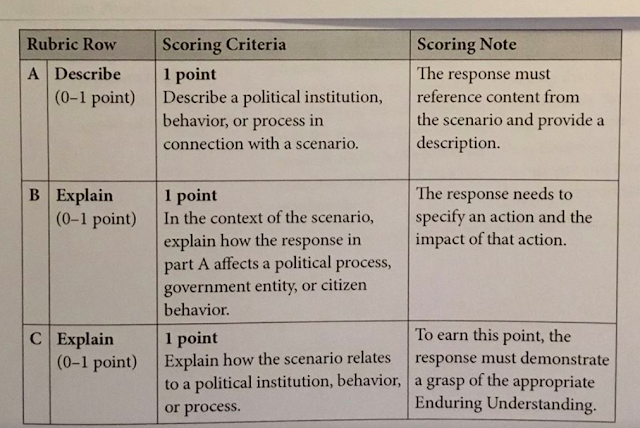Please take a few minutes and fill out this survey on the AP test, my instruction, and advice for future students. I genuinely appreciate your feedback.
Even though we cannot be together for one final speech, I still want to share with you a few final thoughts. Please humor me and read through my ramblings.
At the beginning of the year, I explained how this would be the most important class you take in your high school career (at least in my opinion). The things we learn in government are for more than just an AP test. Understanding constitutional principles like limited government, popular sovereignty, separation of powers, checks and balances are extremely important in reflecting on how our government should operate. Knowing your civil rights and civil liberties (and the difference between them) is fundamental for every citizen. The role of interest groups, political parties, and the media is apparent in government interactions. Now, more than ever, it is imperative for you to be able to think critically and act upon your political beliefs. Remember that in a republic, it is not only your right, but some would argue your responsibility, to participate in civic affairs.

We did participate in civic affairs this year with HB 1508. The pandemic made the legislative process even more difficult than it normally is, but our bill made it out of committee and was eventually attached as an amendment to a Senate omnibus education bill. For a couple of weeks, it looked like we might have a real shot of it being passed, but in the end there were too many other controversial education items in the omnibus bill, and it did not pass. However, we will use our momentum and reintroduce our bill in the next legislative session. Thank you for all of your hard work this year in moving the bill forward and reaching out to schools across the state. With the experience from this first attempt and the support of our legislators, the College Board, higher education, and most importantly students like you, I am confident that we will get it passed before you graduate. That would be an amazing accomplishment!
Finally, as all of you are aware, this is an election year. Many of you will be able to vote in the November election. This is an election of great consequence and every vote matters. Please come see me the first week of school and get registered to vote if you are not already registered. Even if you cannot vote in this year's election, remember to stop by my room and get registered once you are 17 and a half. I will also be providing campaign volunteer opportunities for my students, and if you are interested in getting involved in any of the races ranging from the president to local elections, let me know and I will share the contact information with you.
Thank you all for one of the most unusual teaching years that I have experienced. Between moving from class to class each hour in first semester and then having an abbreviated time with you second semester and the challenges of remote learning, it has been a year to remember. I wish we had more time together, but I am excited for all of you and your senior year. I hope you all have a wonderful summer. Stay safe and healthy. I'll see you in August!











